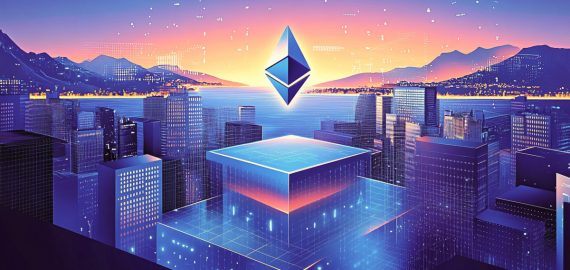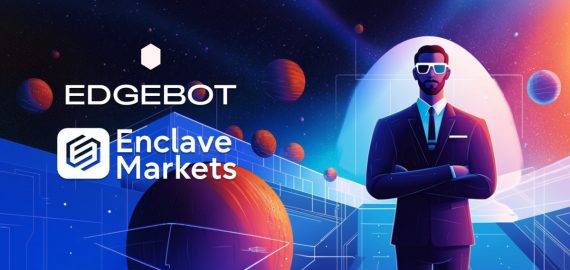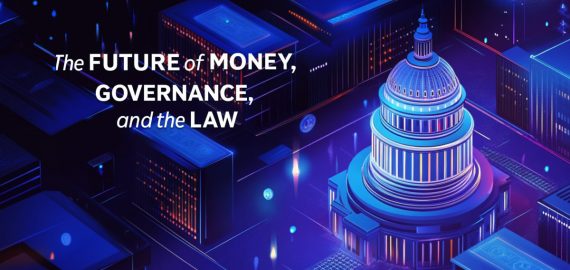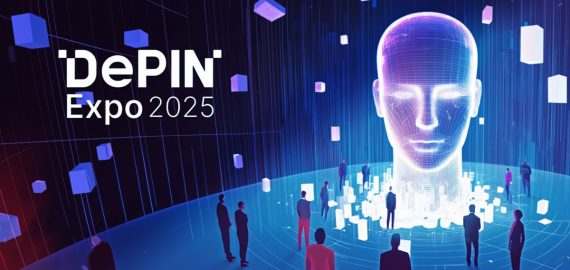Worldcoin’s Product & Engineering Head Akarsh Sanghi Reveals the Project’s Long-term Goals and Aspirations
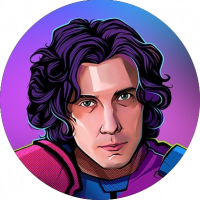

The launch of Worldcoin on Monday has generated significant buzz on both crypto news sites and social media, sparking discussions about the project’s objectives. Some individuals speculate that Sam Altman, Worldcoin’s co-founder, also best known as the CEO of OpenAI, may be competing with Elon Musk to develop a global financial system.
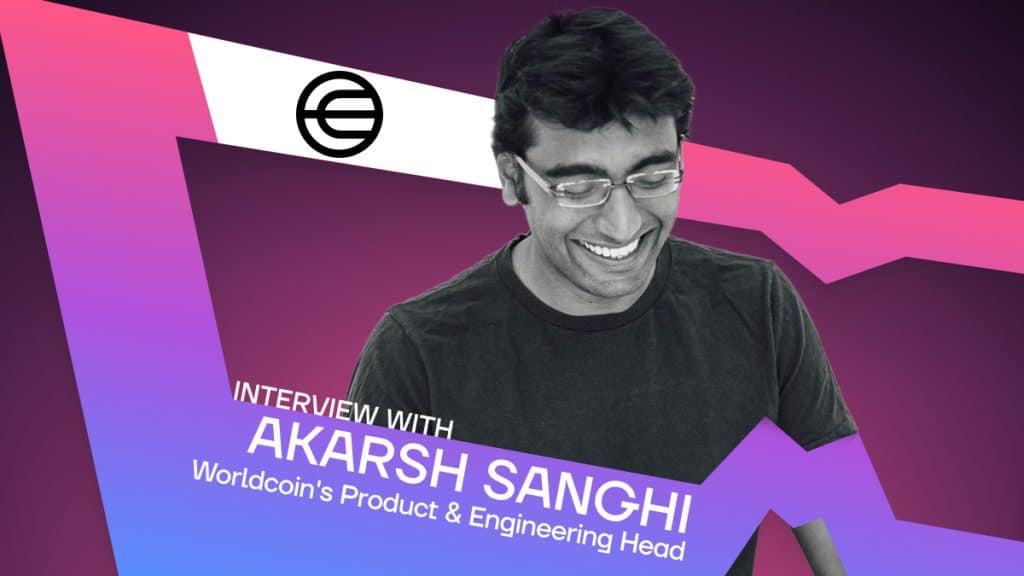
Worldcoin’s launch was not without controversies. Concerns arose even before the launch, regarding the privacy implications of the project’s iris-scanning device, the Orb. Reports suggested that the device stored hashed iris scans in a centralized database, raising questions about potential data-gathering practices. In a blog post published shortly after the launch, Ethereum co-founder Vitalik Buterin addressed possible abuses of Worldcoin’s biometric proof of personhood system.
In light of these developments, the Information Commissions Office (ICO) in the U.K. announced its intent to inquire into Worldcoin, to which the project responded by asserting full compliance with all relevant laws and regulations governing biometric data collection and transfer, including Europe’s General Data Protection Regulation
To gain deeper insights into the workings and goals of Worldcoin’s system, Sergei Medvedev, co-founder of Metaverse Post, sat down with Akarsh Sanghi, the Head of Product & Engineering at Worldcoin. This interview took place at the prestigious WebX conference in Tokyo, where Akarsh Sanghi shed light on the inspiration behind Worldcoin’s system and its broader purpose.
What is Worldcoin? It’s quite creepy sometimes when I see people queuing to scan their faces, and then on one side of that, people bend their knees to scan their faces. Tell me more about the idea, as simple as you can, why you scan people.
There’s a little bit of history to it. The idea of the project was started by Sam [Altman], who’s the co-founder and chairman of Tools for Humanity, the company which supports Worldcoin in its software and engineering efforts. At the time, while Sam co-founded OpenAI, he had this hypothesis that when these AI models create abundance in society and when they become very successful and can be more available and present and doing tasks, there needs to be some way to differentiate those models or that kind of AI from humans. You need to have some kind of differentiation between what a human is doing vs what an AI is doing. Plus, you need a way to redistribute the wealth and the abundance that is captured when these models are deployed in the real world and in the business world or day-to-day world. That was the genesis of the idea.
And when Alex [Blania] and a couple of other team members joined, they started researching how can this idea be implemented. The very raw seed of the idea of how you can create this kind of system. The first and the most important problem to be solved was how you actually identify people. What is the best privacy-preserving fraud-proof mechanism to identify unique human beings around the world, which is non-biased, global, and truly scalable?
There was quite some R&D work done and the conclusion was that biometrics is probably the only way to do that. And within biometrics, you can use face, fingerprints, or you can use iris. But essentially, the idea is that there is a lot of entropy, which means you can have enough data points to be able to differentiate one person from the other. Otherwise, you have other biometric features, you have enough false positives and false negatives, that after a certain point, you will either reject everyone or you will accept everyone, which you don’t want. You can have a lot of fraud in the system.
The team basically did all this R&D and came to the conclusion that they need to use biometrics. And within biometrics, they need to use iris. That was the moment when they decided to build the hardware iris scanner device because they could not buy anything off the shelf. So this was a hard truth to accept at the time, that you have to become a hardware company to solve this other identity problem. It’s not intuitive; nobody in the right mind wants to become a hardware company because it’s very hard to do.
From there, there was a very long journey of building the Orb, deploying the first version of the Orb and coming up with the economic incentive system of how we can deploy it on the world to sign up users, scan their irises, issue them the World ID, issue them the Worldcoin tokens wherever it is allowed. And here we are, where we recently launched the token and signed up 2 million users in our beta testing phase.
That’s a really great journey. Congrats.
There’s a long way ahead. I think Worlcoin’s success in general will be a very long journey. A lot of people don’t realize when I tell them that it’s already almost four years since we launched our token. Now we actually start again. So hard things take time. You come up with something with that kind of ambition, which requires deep R&D and engineering work and in this case, huge operations as well because you have this physical component. You have to go to countries, there are people who just take all this stuff. So it’s just a very hard problem to solve.
Can you explain the technology behind how the Orb scans people? Just in really simple words.
You can think of the entire Worldcoin system as a three-part system:
- You have World ID, which is the identity that is received by the user once they verify or setup at an Orb, they complete the scanning process.
- World App, which is the noncustodial Ethereum wallet that we have built as a flagship experience to allow people to be able to claim their Worldcoin tokens to be able to get their own ID. In the future, there will be other people who will make their wallets and it’s completely supported by working as a protocol. But we wanted to seed the marketplace with one flagship product, which is why this app was built.
- The third part being the Worldcoin token itself.
So that’s the three-part system: World ID, World App, and the Worldcoin token. World ID is essentially what you are issued once you verify with the Orb. How it works is that a user walks up to the Orb, the Orb captures a high-resolution image of your eye. It has a bunch of computers running on the device. We use an NVIDIA computer on the device and it has seven neural networks, which have a process called iris segmentation, essentially. It segments out the iris part of your eye and computes an iris code. This code is then checked against the set of existing codes that have been created previously. Depending on the outcome, it either accepts or rejects the user.
Just posted our own 'man in the mirror' moment at @WebX_Asia@medveps trying his hand at self-verification via WorldID from @WorldCoin.
— Metaverse Post Ⓜ️ (@mpost_io) July 25, 2023
It turns out that becoming a human is easier than we thought! Check out the video for a good laugh 😂 pic.twitter.com/LW9GkGLN32
If the code is unique, the success message is issued and the customer gets their Worldcoin tokens, and they get the world ID. And if a person is trying to get more tokens or another ID, it will basically reject the user because they’ve already signed up before. It’s actually just a binary outcome. It’s like yes or no. But all this work was done to build it in a way that is privacy-preserving because we are not storing any data. It has to be self-contained. That’s an interesting point that we’ll talk about in a bit. But all this work was done to create the system to allow for this project to scale.
Can you elaborate on why I should scan myself? What I can do with that? Maybe in the future? Maybe now.
One other example – because Worldcoin is sort of heavily inspired by that – is the national ID program of India called Aadhaar. I don’t know if your audience or readers are familiar with that. But it’s actually pretty incredible what India as a country has accomplished with the Aadhaar program.
It started in the late 2000s as a social security-type program for India by the government. The idea was that India as a large country, with a lot of people of different socioeconomic status, they don’t have a full ID system. There’s no national ID. People have their passports, driver’s license, and a combination of things. And different people have different things. Not everyone has a passport, not everyone has a driver’s license. You couldn’t even identify who in India has what. So they rolled out the Aadhaar system essentially using biometrics. They use iris, face, and fingerprint to onboard the entire country of more than 1.2 billion people onto that whole program and give them that ID. Everyone got their ID based on biometrics. And they did that over a couple of years. What they did was everyone in the country got an Aadhaar card number, a six or seven-digit number. A unique number that I have because I’m from India, and you need to have one.
At this point after 10 years of existence, it has unlocked a huge application stack on top of it called the India stack. One of the most amazing things about the Indian banking or financial system is UPI (universal payments interface). Or unified I think. It essentially allows you to go peer to peer basically for free based on phone numbers, but you need Aadhaar for that. It’s like Paypal all this stuff that was in the Western world— a little bit old school, private company. But Aadhaar is enabled by the government essentially for free so you can unlock these kinds of great applications with this ID system.
We at Worldcoin are very heavily inspired by that because if we think about what is fundamentally possible by a most basic thing, which is a way to identify people in a unique way, and then unlocking an entire application stack on top of it, and let the developers and entrepreneurial community around the world build a set of applications within.
How we think about it is that we want to be that fundamental layer where we set up billions of people around the world, sign them up, issue them the World ID, issue them Worldcoin token and open up developer tools to allow other developers to build applications on top of it.
We have been doing this already for the past year, but more at an experimental level. We’ve been at many Ethereum conferences and many hackathons where developers have been hacking with World ID SDK, and building voting applications for DAO voting. They’ve been building airdrop applications, even for gaming. If gaming organizations only want real people to use their games, not just bots, they put the SDK saying “login with World ID.” People want to enforce things like one person, one vote so if any kind of a DAO governance structure, doesn’t want one person having 10 votes because it skews the outcome, how do you enforce that? Well, you log in with World ID, if you’re all verified, or if you’re verified with Worldcoin, that means you’re alive and a unique human individual. So you can sign in with that.
It’s still very early stage so that’s why we say it’s a beta phase. This will be a long-term plan of unlocking the application stack because you need a large set of users who are verified with it and have the ID in the first place. Otherwise, it doesn’t work. But once there is, there’s a huge opportunity to unlock an application stack on top.
It’s brilliant. There are many unfair things you have to face in the world just because you were born in a certain country. For example, you need a visa everywhere and it’s uncomfortable and it’s based only on the perception of your country and your diplomacy. So even if you’re wealthy, you have good traction, nobody cares. And I think it’s a good case if you work with the government, and they say they will accept just proof of a concrete and specific human being. Do you have something planned with governments right now?
No, it’s all run independently, there are no conversations ongoing about a partnership with the government. I think it’s initially also not the right thing to partner with the government. But eventually, I think there will be people from the government who will reach out. And we also already have a policy team and this already engaging with some organizations and government officials around the world. But it’s very early. We are literally in the beta stage. We weren’t in the beta stage until recently. We have to come out of the beta stage and then we scale up the operations around the world. So it’s just too early to say even what a government partnership should look like. It’s not obvious in the beginning, so I think it’s a little bit of a longer-term thing I would say.
What’s your perception of the Asian market, and adoption in the Asian market in general? We’re in one of the biggest conferences right now in Japan, and you see the adoption here. Is it faster than the Western world?
I think, in Asia, first of all, it’s absolutely incredible. I have been to a few places in the last couple of weeks. So it’s my first time in Japan. Before this, I was in Hong Kong and last month, I was in South Korea, in Seoul. And we have recently kind of opened operations in all these places. Very small scale, but still we are slowly rolling out more Orbs and signing up users here. And it’s absolutely incredible.
I think there are a couple of reasons. In general, the entire society here is very forward-thinking, very tech-friendly, and very curious about new and novel things and experiences, which is very amazing, for an organization like us where we are trying to basically do this new thing in this new way where we have this Orb and you have to go to a physical place and sign up and you download an app. It’s a lot of steps for the user and they’re willing to do that, which is amazing. I think that’s what you want to capture and lean into to be able to serve those users in the best way possible. After this, for the last three days that I’ve been in Japan and Tokyo here, I would really like to go back to my team and discuss what should be a path to really have like permanent presence in the entire region by having the right approvals and kind of finding the right local partners, to be able to deploy a much bigger fleet of Orbs and sign up more and more people.
Obviously, it has to be done in a different way because you have to come and respect the culture, the way of doing business is very different than in the Western world. It’s very unique to their country so you have to respect that. So that’s why we need local partners and local teams. But once those things are figured out, I think it can be absolutely phenomenal for the next years. I easily can imagine millions of users just in this country in the next 12 months.
Absolutely. Because here in Asia, in general, they’ve got technology from the ground level. Even older people use iPhones and just scan QR codes. Wow!
It’s not a thing in Western Europe.
Yeah. And it’s crazy when you’re in China and everyone uses WeChat Pay, and they don’t accept cash. I like it. It’s your first time in Tokyo? What’s one thing you really, really like about Tokyo?
I’ve had limited time, because I’ve been running around the city, with the Orb, with the different teams that are community specialists around here to set up users and serve our customers who have been waiting for an Orb for a while. But whatever little I’ve seen by walking around the city, it’s a very unique and interesting place. I think Japan to me is the only place in the world where the modern and the technically advanced and then also the deep cultural values from the past kind of mix in such a smooth and unique way. I’ve been in Europe for many years and Europe has some of that, but not in a way that Japan has. I think it’s the most unique thing about Japan that they mix the past and the present and even the future in such a unique way.
That is just very impressive to see. I mean, you hear all of these things, you see it in the movies, you read about it, but when you come here physically and see it for yourself, you realize there is truly nothing like Japan. I’ve been very, very impressed. People are very kind, are very polite and very forward-thinking and wanting to try out new things, which is always a good sign for me. I think the progress of any society is measured based on how progressive the people are in a way where they’re willing to try new things.
Keep track of cryptocurrency distributions in our Airdrops Calendar.
Disclaimer
In line with the Trust Project guidelines, please note that the information provided on this page is not intended to be and should not be interpreted as legal, tax, investment, financial, or any other form of advice. It is important to only invest what you can afford to lose and to seek independent financial advice if you have any doubts. For further information, we suggest referring to the terms and conditions as well as the help and support pages provided by the issuer or advertiser. MetaversePost is committed to accurate, unbiased reporting, but market conditions are subject to change without notice.
About The Author
Serial entrepreneur with 14+ years experience. Transformed Cointelegraph from 1M to 19M MAU and launched 8 local branches. Now helping corporates make the shift to web3.
More articles

Serial entrepreneur with 14+ years experience. Transformed Cointelegraph from 1M to 19M MAU and launched 8 local branches. Now helping corporates make the shift to web3.















































